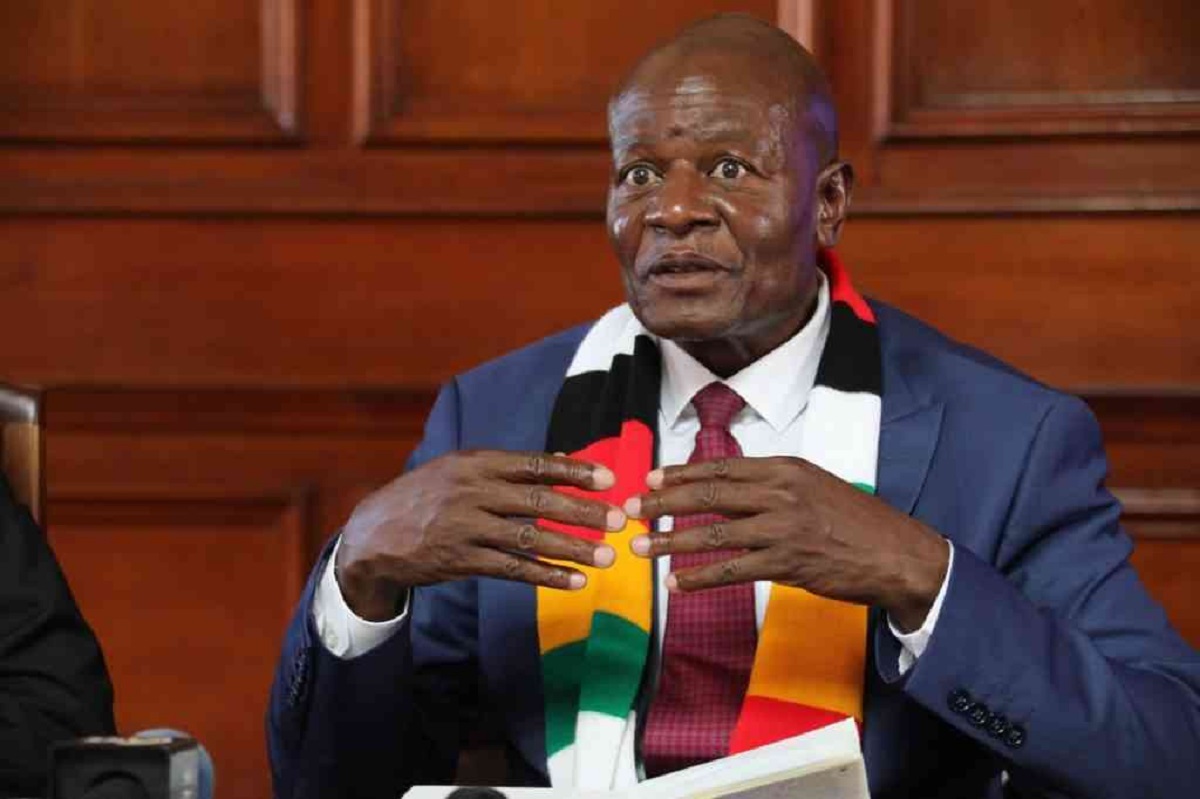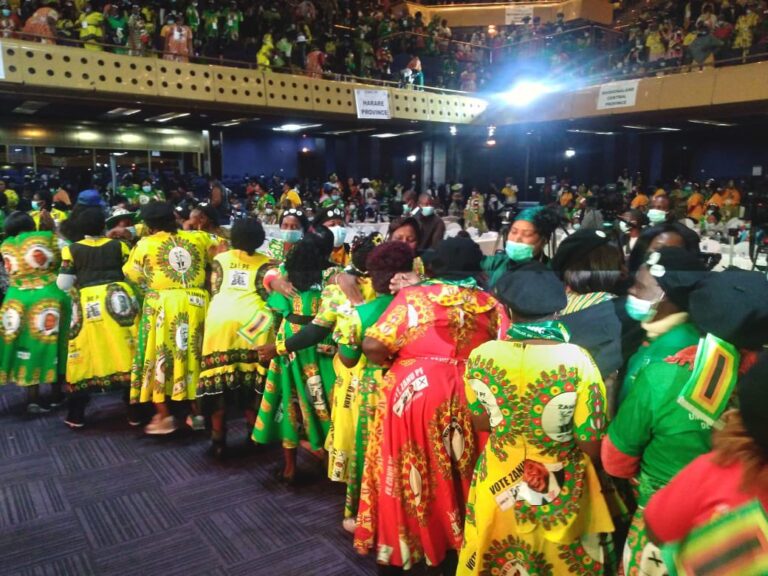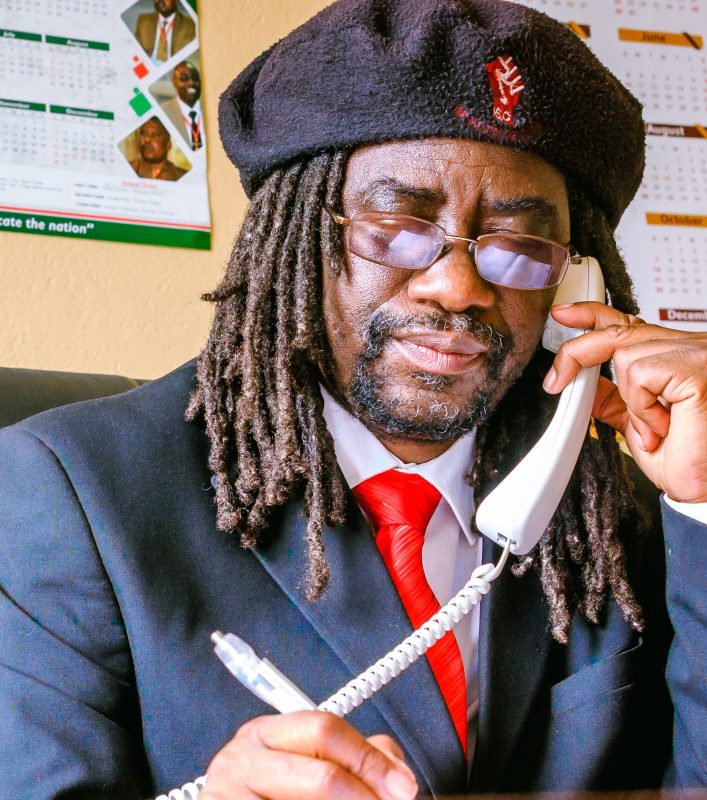HARARE— The political sphere in Zimbabwe is reeling from a statement attributed to Minister of Local Government and Public Works, Daniel Garwe, who is reportedly seeking to extend "forgiveness" to Blessed Runesu Geza (known as Comrade Bombshell), the war veteran who led a ferocious, public, and treasonous campaign against President Emmerson Mnangagwa and the First Family earlier this year. Geza’s campaign, …
Is Garwe’s Offer Of Forgiveness A Political Trap Or A Confession?

HARARE— The political sphere in Zimbabwe is reeling from a statement attributed to Minister of Local Government and Public Works, Daniel Garwe, who is reportedly seeking to extend “forgiveness” to Blessed Runesu Geza (known as Comrade Bombshell), the war veteran who led a ferocious, public, and treasonous campaign against President Emmerson Mnangagwa and the First Family earlier this year.
Geza’s campaign, which led to his expulsion from ZANU-PF, saw him besmirch the names of senior government officials, fellow war veterans, serving security sector members, and inflict irreparable damage on the reputation of the highest office in the land through a series of inflammatory and unsubstantiated allegations.
The prospect of forgiveness, instead of offering reconciliation, has detonated a political firestorm, compelling observers to ask: What possessed Daniel Garwe to float the idea of pardoning a fugitive accused of undermining the authority of the President?
Geza’s actions were unequivocally condemned by the ZANU-PF Politburo as divisive and treasonous.1 He faced a police manhunt on charges that included undermining presidential authority, and his attempts to rally nationwide protests were swiftly quashed by the state.2
The argument against forgiveness is clear and compelling: Rewarding such behaviour sets a dangerous precedent.
“If we listen to Daniel Garwe and reward such behaviour, we will motivate others to do worse, hoping that the precedence will be upheld,” argues a senior party member speaking on condition of anonymity. “Geza caused irreparable damage to the names and reputation of the First Family and senior government members. He should be held accountable.”
Forgiving Geza would be seen by many as granting impunity to a man who, at the least, attempted to destabilize the nation’s highest office and, at most, was actively involved in a factional revolt. It suggests that a sufficiently loud and damaging campaign, rather than being punished, could be rewarded with amnesty.
Minister Garwe’s alleged call for forgiveness sharply contrasts with his previous, widely publicized stance. Earlier this year, Garwe was among the most vocal critics of Geza, vowing to “act decisively” against the war veteran’s masters and launching “scathing attacks” on Geza himself while proclaiming his unwavering support for President Mnangagwa.3
This dramatic U-turn fuels intense speculation: Is this a calculated political manoeuvre, perhaps an attempt to project an image of magnanimity or to lure Geza’s alleged ‘masters’ into the open? Is it a way to ‘smoke out’ remnants of a factional rebellion under the guise of unity?
If the Minister is truly seeking a path to clemency, it signifies a massive internal shift that prioritizes party unity over upholding the law and protecting the dignity of the President’s office.
The most disturbing question being asked in political circles is one of complicity: Was Garwe involved right from the start in the operation that launched Blessed Geza’s rebellion? His sudden pivot from fierce foe to advocate for clemency is raising deep suspicion that his earlier condemnation was a façade, and he is now attempting to cover his tracks by extending an olive branch to a potential co-conspirator.
The perceived motive for such a radical change—from vengeance to forgiveness—is simply not making sense to many within the party, thus casting a suspicious eye on Minister Garwe himself.
Until Daniel Garwe offers a comprehensive and credible explanation for his reported shift, his proposal to forgive a man accused of treason will remain a political timebomb. It is a decision that risks empowering future dissent, betraying the loyalty of those Geza attacked, and most immediately, placing the Minister under intense suspicion regarding his own allegiance and potential involvement in the very plot he once condemned.
The government and the party now face a critical choice: uphold accountability for the grievous damage caused by Geza’s campaign, or risk setting a dangerous and rewarding precedent for treason.





